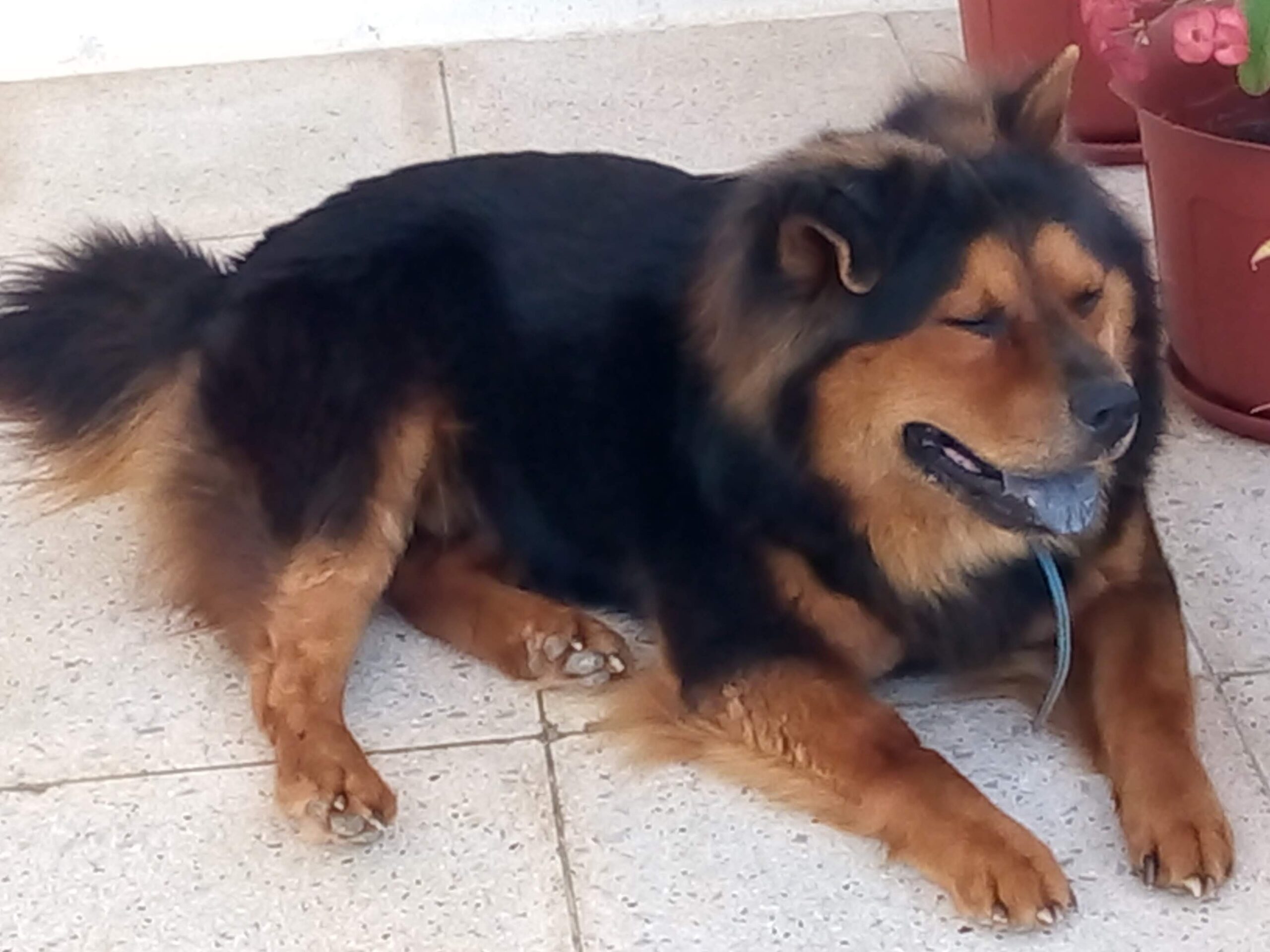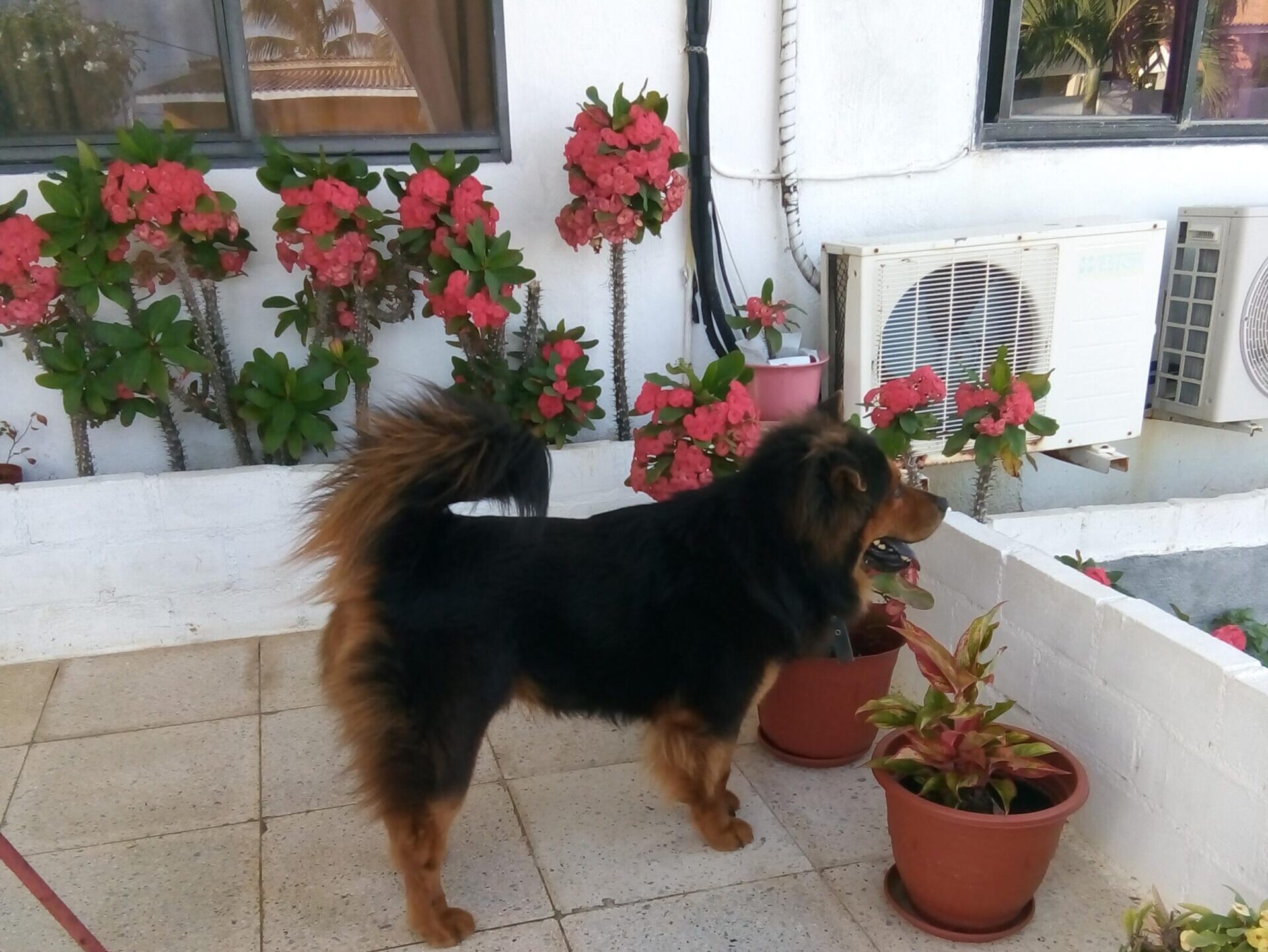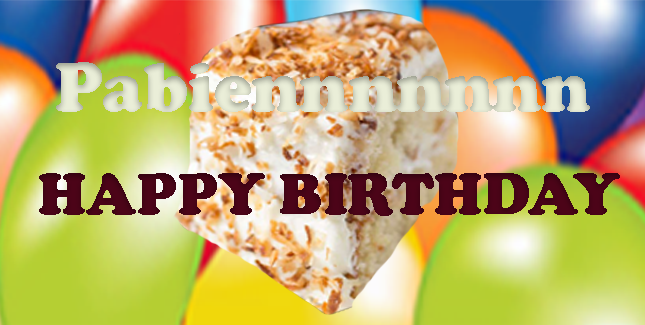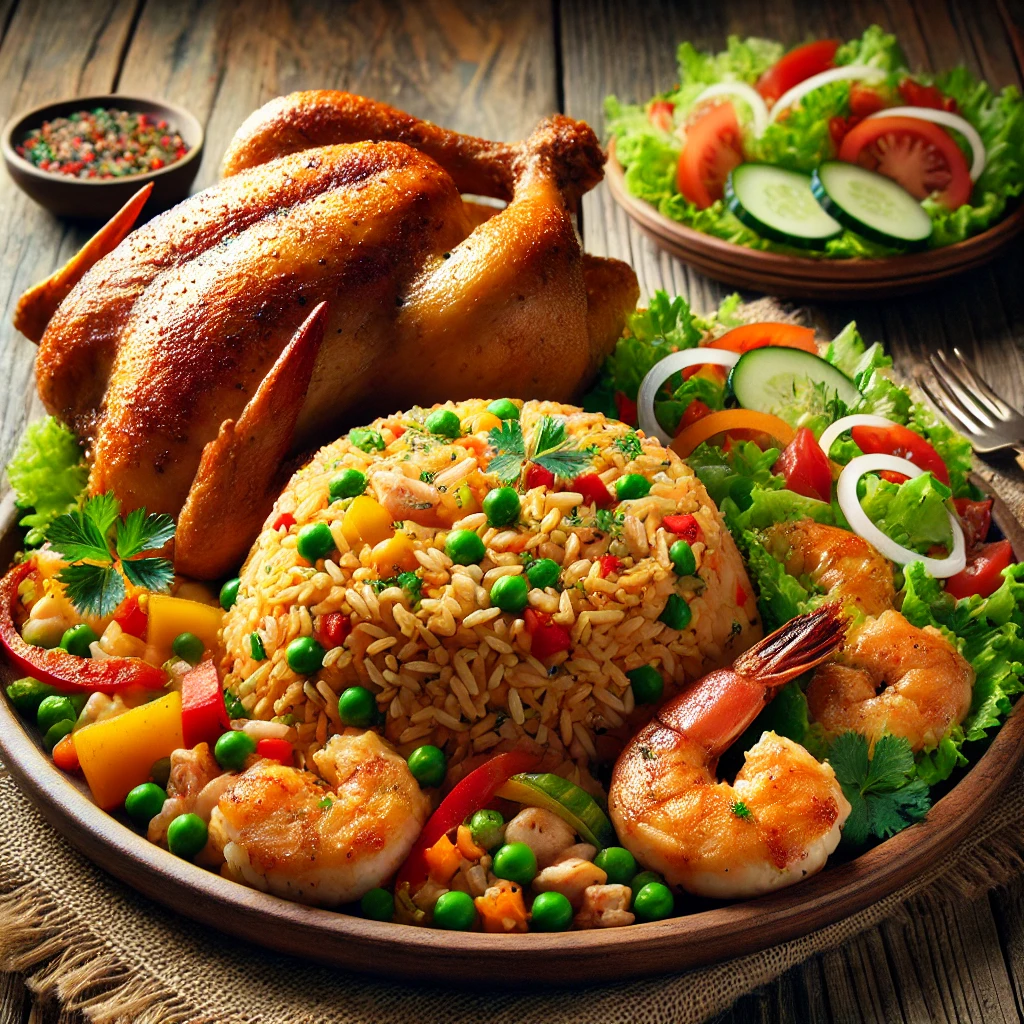Introduction to Fozi:
Meet Fozi, a lovable Chow Chow with a heart of gold. Fozi is a friendly and loyal boy dog who adores children and enjoys every moment spent with them. With his protective instincts and a penchant for playfulness, he’s the perfect playmate and guardian for the little ones. However, there’s one thing to remember: Fozi has a strong aversion to cats, so it’s essential to manage his interactions carefully when feline friends are around. But with kids, Fozi is all joy and devotion, making him a cherished member of the family.

Chow Chow Dogs
Appearance: Chow Chows are a medium to large-sized breed with a distinctive lion-like mane of fur around their neck. They have a stocky, muscular build and a thick double coat that can be smooth or rough. The coat can come in various colors, including red, cream, cinnamon, blue, and black, among others.
Black Tongue: The black tongue of the Chow Chow is one of its most famous and unique features. It’s a genetic trait, and not all Chow Chows will have completely black tongues. Some may have spotted or partially black tongues. The reason for this characteristic is not entirely understood, but it’s a defining trait of the breed.
Temperament: Chow Chows are known for their independent and aloof nature. They are often reserved and loyal to their family but can be wary of strangers. This breed can be very territorial and protective, making them good guard dogs. Early socialization and training are essential to ensure they are well-behaved and comfortable around people and other animals.
Exercise and Care: Chow Chows require regular exercise, but they are not overly active dogs. They benefit from daily walks and some playtime, but they are not as high-energy as some other breeds. They are well-suited to indoor living and can adapt to apartment life if they receive enough exercise and mental stimulation.
Grooming: The thick double coat of the Chow Chow requires regular grooming. Brushing their coat a few times a week is necessary to prevent matting and reduce shedding. They may also need occasional bathing.
Health: Chow Chows can be prone to certain health issues, including hip dysplasia, patellar luxation, and entropion (a condition where the eyelids roll inward). It’s important to work with a responsible breeder and schedule regular check-ups with a veterinarian to monitor their health.
Chow Chows are a unique and distinctive breed with their black tongues, but they are not suitable for everyone due to their temperament and grooming needs. If you’re considering bringing a Chow Chow into your home, make sure you’re prepared to provide them with the care and attention they require.

More about chow chow dogs
Origin: The Chow Chow is an ancient breed believed to have originated in China over 2,000 years ago. They were initially used for various purposes, including hunting, guarding, and pulling carts. Their name may be derived from the Chinese term “puffy-lion dog,” which describes their unique appearance.
Appearance: In addition to their black or bluish-black tongue, Chow Chows are known for their distinctive appearance. They have a square-shaped body with a lion-like mane, a broad head, and small, triangular, upright ears. Their eyes are dark and deep-set, and their tail is carried over their back in a curled fashion.
Temperament: Chow Chows are known for their aloof and independent nature. They can be quite reserved and cautious around strangers but are usually loyal and protective of their family. Socialization from an early age is crucial to ensure they are well-adjusted and comfortable with various people and situations. While they can be loving and devoted to their owners, they are not typically considered a highly affectionate or overly playful breed.
Intelligence: Chow Chows are intelligent dogs but can also be quite stubborn. Training should be consistent and firm, using positive reinforcement techniques. They may not always be eager to please, so patience and persistence are essential in training.
Exercise: Chow Chows require daily exercise, but they are not extremely active dogs. A couple of walks and some playtime in the yard should suffice. They can do well in an apartment setting as long as they receive their daily exercise and mental stimulation.
Grooming: As mentioned earlier, their double coat needs regular grooming to prevent matting and shedding. They have a dense, coarse outer coat and a soft, downy undercoat. Brushing a few times a week is necessary, and they may require more attention during seasonal shedding periods.
Health: Chow Chows can be prone to certain health issues, including hip and elbow dysplasia, patellar luxation, entropion, and various skin conditions. Responsible breeding practices and regular veterinary check-ups are essential for maintaining their health.
Lifespan: The average lifespan of a Chow Chow is around 9 to 15 years, depending on their overall health and care.
Chow Chows are a unique and ancient breed known for their distinct appearance and black tongue. They are a loyal and protective companion for those who understand and appreciate their independent nature and grooming needs. If you’re considering adding a Chow Chow to your family, make sure to research the breed thoroughly and choose a responsible breeder or consider adoption.





